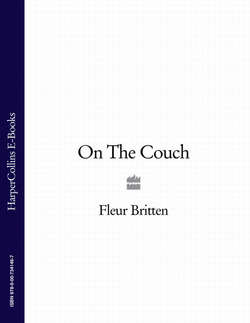Читать книгу On The Couch - Fleur Britten - Страница 17
19TH OCTOBER
Оглавление‘So guys, how do you feel after all that alcohol?’
‘Fine!’ we replied, in grinning defiance.
I bounded out of bed to put the kettle on.
‘Actually, we don’t drink from the tap.’
‘But it’s okay boiled, no?’
‘The government says yes but I say no.’
Faced with this planet-sized ego, my British diplomacy could hold its banks no more. I started experiencing inappropriate compulsions to take her on; the self-doubt that had bothered me in Moscow had summarily been pushed aside.
Breakfast was porridge and politics. What did Polly think of Medvedev? Did Russia regard him as Putin’s puppet?
‘I met a DJ from Munich who said the same thing, but the election was shown as democratic—maybe it was the truth that lots of people voted for him.’
‘Yes’, we said, ‘but there are ways of pushing the electorate.’
‘My generation is tired of politics,’ she said with a brush of the hand. ‘We don’t have a newspaper culture here. The most common news in Russia is rumour. It goes back to Soviet times when the only information was rumour. People would meet in the kitchen, where you’d be sure that no one would go to the government. It still exists now: people don’t want their brain to be—what’s the word—pressed?’
Did she feel Asian? Apparently not, despite Yekaterinburg sitting within Russia’s Asian border. It seemed all Russians wanted to be seen as European. She explained that in Yekaterinburg there were many Tajiks, Dagestanis and Chechens, selling vegetables in the market.
‘I’mnot a racist,’ she said, arching an eyebrow, ‘but I don’t like them. They’re Muslims—they have absolutely different minds. They are used to war so they can’t think any other way. They don’t trust people.And I don’t like theway they treatRussianwomen.We are nothing to them. They make a lot of sex violence in the night.’
She flicked on the TV to check the outside temperature: 8°C. Polly was going to take us on a guided tour. She’d done a couple of days’ training as a guide—that definitely boosted her couchsurfing worth.
‘Polly, do you mind if we take a taxi to wherever you’re taking us?’ asked Ollie. ‘It’s hard to walk any distance.’
‘But it won’t work with taxis—we’re going to lots of places and they’re all close.’
It was even harder for Ollie to put his foot down.
So, in perfect, crisp sunshine, we were escorted to Yekaterinburg’s finest by our own private guide. We passed the Black Rose monument to soldiers lost in Russia’s Afghanistan War in the 1980s; a traditional, wooden Russian house, home to a fringe theatre; the early 19th-century Ascension Church that survived the communists; a lemon-yellow stucco merchant’s mansion handed over to the Young Pioneers; and across to the Church of the Blood. Built in 2003, on the site where the last Tsar and his family were murdered, there were plenty of hip young Russians inside, praying solemnly in rather unhip headscarves and skirts. Religion was very fashionable here, Polly explained.
‘I think it’s stupid so much money was put into this building. This is a place that makes you look to God, not talk to him.’
At the Metenkov Photography Museum we found an exhibition from a recent local competition.
‘Did you enter?’ I asked, one eye on a photo of an overweight, topless construction worker.
‘Yes, but I didn’t like the judges—they were so conservative. They didn’t even say anything about my entry.’
I rolled my eyes rebelliously. We took a tram to Lenin Prospekt, location of the City Hall where her mother worked. Just outside, a beat-up old car drove into the back of another. Both drivers laughed and sped off. Polly pointed out her mother’s office—as the city’s culture minister, she had her own driver, she told us, and a new black Volga.
‘The beautiful thing about couchsurfing,’ I said, ‘is that you form emotional attachments with cities.’
‘But you didn’t hear about the secret Russian soul?’ she said, as if I hadn’t heard of Russia. ’You really didn’t hear that we have so great literature, that we are so open-hearted?’
‘No,’ I retaliated—that wasn’t the point. My point was that our memories wouldn’t be of architecture and facts, but of personalities and homes. Couchsurfing gave a place the human touch—that could happen anywhere, and it certainly didn’t take a legacy of literature to enable it. Polly’s phone rang.
‘Christ,’ I muttered darkly to Ollie, ‘I can’t handle any more arrogance, nationalism or bigotry. Oh the irony of the Russians thinking they’re the best.’
My British pride was boiling. Ollie defused me with the appropriate pacifiers, while I consoled myself with the fact that at least when hosts could be tolerated no more, it would soon enough be time to leave.
I determined to behave and suspend my ego for our last supper—Polly took us to a traditional Urals canteen to carb-load before our 25-hour train journey that night to Novosibirsk. She explained all the strange, muddy offerings, helping us to choose rich, oily Uzbek plov (lamb pilau with carrots, cumin and paprika), pelmeni (meat dumplings), shredded pork in aspic, and sweet pancake filled with horridly sour, granulated milk. Good behaviour was productive—I was sweet to her, she was sweet back; it gained its own momentum. I nearly lost the plov when she asked, ‘So Fleur, what do you do for a living?’ After all this time.
One classic Polly one-liner came as an unexpected afterdinner treat when we popped into the supermarket: to my offer to carry her five-litre vat of water, she replied, ‘I’m not a feminist—men should carry heavy things for women. It’s not good for women before they are pregnant.’
Priceless. Polly was a raging feminist.
